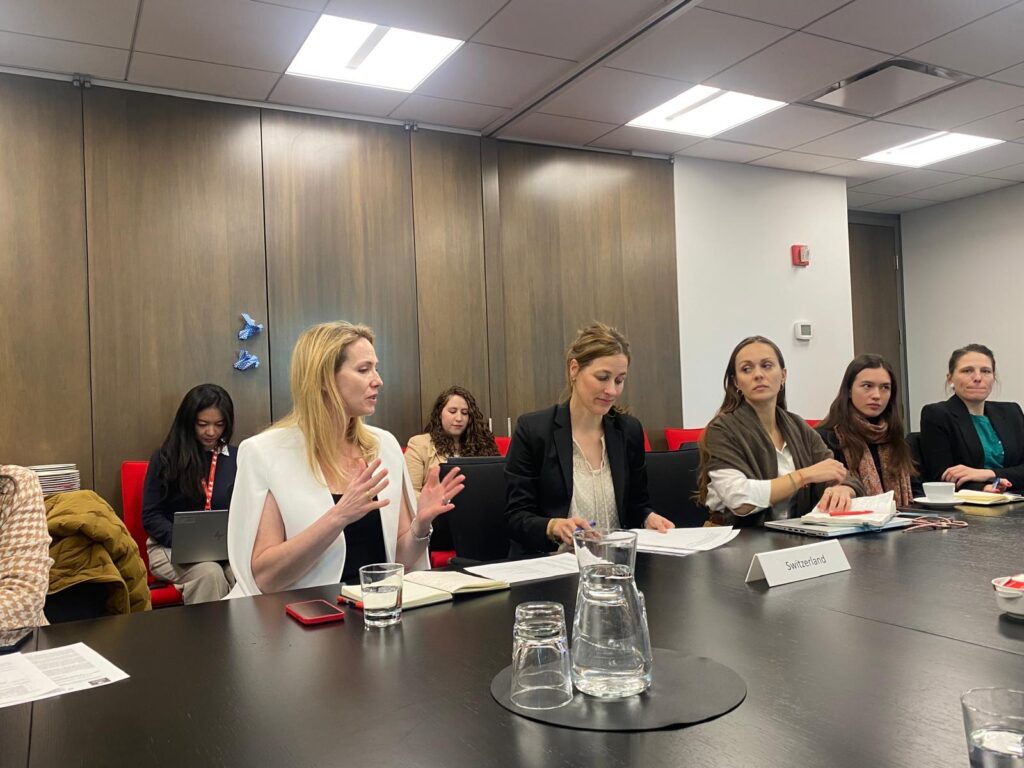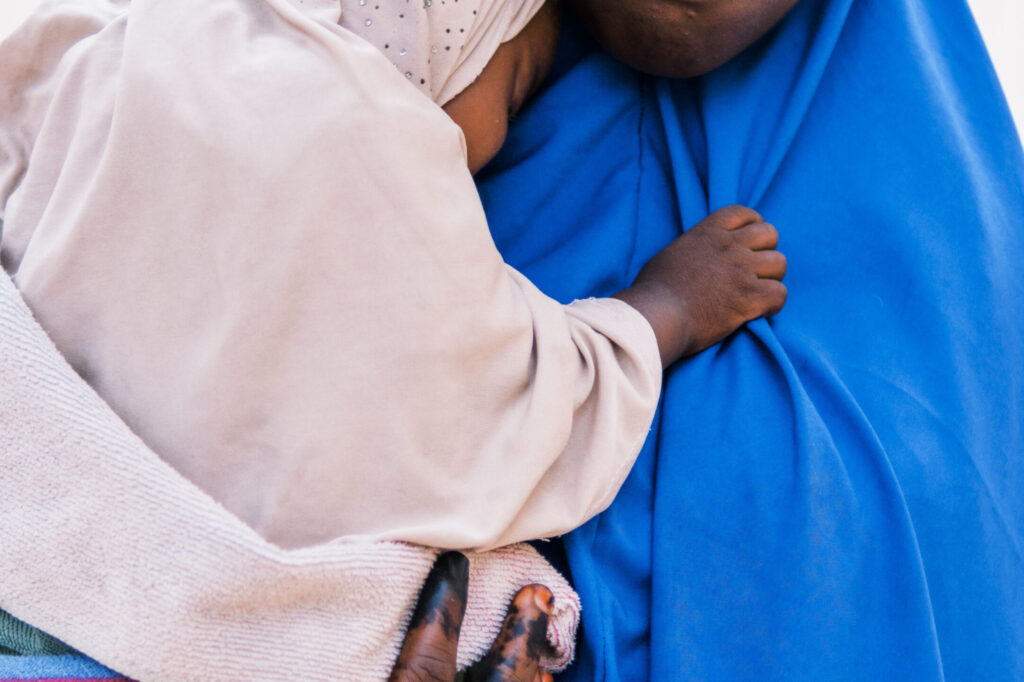UNIDIR’s Managing Exits from Armed Conflict (MEAC) Project, in collaboration with the International Crisis Group and the Permanent Mission of Switzerland to the United Nations, convened a panel discussion on the many facets of women’s association with armed groups. The event brought together researchers, policymakers and practitioners to delve into the multifaceted roles women and girls play in armed and criminal groups, presenting findings from Colombia, the Lake Chad Basin, the Niger-Mali border, and Mexico.
The discussion illuminated the complexity of women and girl’s involvement with armed actors, pushing back against oversimplified narratives that cast women and girls solely as victims or perpetrators. Instead, the panel explored how their experiences and roles are shaped by intersecting factors such as age, marital status, experiences of gender-based violence, ethnic identity, and socioeconomic pressures.
Research findings presented during the event underscored how association with armed groups is frequently influenced by structural inequalities and systemic challenges. For example, some women and girls in the Lake Chad Basin joined armed groups to escape forced marriages arranged by their families, while many others were forced into them and then into forced marriages with their fighters.
In Colombia, some indigenous survivors of sexual violence are joining armed groups because the mechanisms available to them in their communities fail to deliver justice and accountability and they see the armed groups as a mechanism to exact revenge on perpetrators. These findings challenge the simplistic lens through which women and girls’ involvement with armed actors is often viewed and calls for interventions that reflect the full scope of their experiences.
Policy recommendations rooted in complexity
Building on this nuanced perspective, the discussion emphasized the need for policies and programmes that are both context-specific and inclusive. Reintegration programmes should move beyond generic models to provide tailored psychosocial, legal and economic support that aligns with the realities of women and girl’s lived experiences. These programmes must address the gendered dimensions of the many needs of women and girls exiting armed groups, including food security, forced and early marriages and domestic violence, efforts which demand sustained, gender- and age-responsive programming and flexible funding.
“Failures within the indigenous justice system to effectively address sexual violence within the Nasa community in Colombia, combined with insufficient family and community support for survivors, are driving some women to join armed groups in the region. For these survivors, joining these groups represents not only an escape from the cycles of violence they endure but also a chance to pursue the justice that their community failed to provide.”
Sofia Rivas, Researcher for MEAC at UNIDIR
Reintegration strategies must account for the diverse needs of indigenous communities by respecting and incorporating their customs, traditions and other cultural practices into program design and implementation. Strengthening the resources, capacity, and coordination of local institutions is essential to effectively prevent and mitigate the hardships driving women and girls into conflict.
“The hardship and violence faced by these women and girls did not begin with, or end after their time with Boko Haram…The international community has long criticized the gender and sexual-based violence committed by Boko Haram, but has failed to see how these legacies of violence continue long after women and girls have exited the group.”
Francesca Batault, Associate Researcher for MEAC at UNIDIR
Deep dives into gender, justice and peacebuilding
The recent event explored evidence-based, gender-responsive strategies for conflict prevention and peacebuilding. The panel discussion built upon insights from recent UNIDIR research, including:
- Sexual Violence and the Struggle for Justice: The Involvement of Indigenous Nasa Survivors in Armed Groups in Northern Cauca – which explores the intersection of sexual violence, justice mechanisms, and armed group recruitment within the Nasa Indigenous community in the North of Cauca, Colombia.
- Survival and Struggle: The Experience of Women and Girls With and After Boko Haram – which provides an in-depth analysis of the lived experiences of women and girls associated with Boko Haram in the Lake Chad Basin, and highlights strategies for gender-responsive reintegration.

Moderated by Dr Siobhan O’Neil, Head of the MEAC Project at UNIDIR, the panel discussion concluded with a Q&A session. Participants reflected on the risks of reinforcing harmful gender norms in peacebuilding efforts and emphasized the importance of grounding interventions in the nuanced, local realities of conflict-affected women.
This event reaffirmed UNIDIR’s commitment to advancing nuanced, evidence-based solutions that recognize the complexity of women’s and girl’s experiences in armed conflict and foster sustainable peace.
